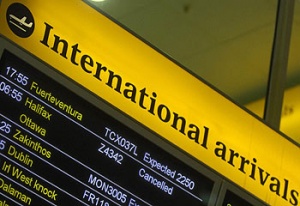European Commission adopts Transport 2050

The European Commission has adopted a comprehensive strategy for a competitive transport system which it hopes will increase mobility, remove major barriers in key areas and fuel growth and employment.
At the same time, the proposals – entitled Transport 2050 - will reduce Europe’s dependence on imported oil and cut carbon emissions in transport by up to 60 per cent argues the commission.
Key goals include the exclusion of conventionally-fuelled cars in cities, a 40 per cent use of sustainable low carbon fuels in aviation and a 40 per cent cut in shipping emissions.
A large shift of medium distance intercity passenger and freight journeys from road to rail and waterborne transport is also a prerequisite of success.
The commission hopes all of these targets will contribute to a 60 per cent cut in transport emissions by the middle of the century.
Vice-president Siim Kallas, responsible for transport said: “Transport 2050 is a roadmap for a competitive transport sector that increases mobility and cuts emissions.
“We can and we must do both.
“The widely held belief that you need to cut mobility to fight climate change is simply not true.
“Competitive transport systems are vital for Europe’s ability to compete in the world, for economic growth, job creation and for peoples’ everyday quality of life.
“Curbing mobility is not an option; neither is business as usual. We can break the transport system’s dependence on oil without sacrificing its efficiency and compromising mobility.
“It can be win–win.”
Transport 2050
The Transport 2050 roadmap to a Single European Transport Area sets out to remove major barriers and bottlenecks in many key areas across the fields of: transport infrastructure and investment, innovation and the internal market.
The aim is to create a Single European Transport Area with more competition and a fully integrated transport network which links the different modes and allows for a profound shift in transport patterns for passengers and freight.
To this purpose, the roadmap puts forward 40 concrete initiatives for the next decade.

